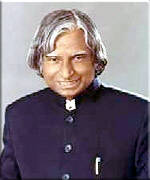

The Times Of India
 Faith is something one `believes in'. It serves a major evolutionary purpose and has been an essential part of human nature since long. When All religions are based on faith, but not all faiths are religious shared by members of a group, faith strongly supports that group's internal cohesion.
Faith is something one `believes in'. It serves a major evolutionary purpose and has been an essential part of human nature since long. When All religions are based on faith, but not all faiths are religious shared by members of a group, faith strongly supports that group's internal cohesion.
It strengthens that group's capacity to cope with the challenges of a hostile environment, and to compete successfully with other groups animated by different faiths.
If you believe in nothing, if you question everything, then where are you? You are like a ship adrift, without a destination. You have a crew but no captain, pilot, compass or charts. You may end up in different waters from where you began, but to what purpose? What was the voyage for? With faith you know where you are going. At least you get going in the right direction and your faith may give you the assurance that somehow, the voyage isn't over, you will continue in some other form. Faith lends meaning to an otherwise meaningless existence. It makes life worthwhile.
All religions are based on faith, but not all faiths are religious, at least in the sense of requiring adherence to a recognised religious persuasion. Religion teaches one to be altruistic, but traditionally that spirit of altruism has applied primarily to members of one's own group. All too often, believers have chosen to show their enthusiasm for their chosen faith by fighting other groups.
Individually or severally, anger and violence lead to outbursts of extremism including world wars. The feelings of hatred feed on themselves. We need to find lasting solutions and promote peace through unity.
The unity of minds is basically a humanist precept. It resides comfortably at the heart of the humanist perception; anywhere else, inside any old-fashioned belief in a God who favours some groups over others, it is an unfamiliar element. It troubles the true believer with the contradiction between tribal suspicion of outsiders and the thought that the outsider is a human being like him. Such doubt can irritate the ranks of the faithful into gradually, over many generations, perhaps, expanding the ambit of their faith in a pan-humanist direction to include all humanity.
We are sceptical about faiths that require uncritical acceptance... Faith is more a state of mind that leads people to believe something ^ it doesn't matter what in the total absence of supporting evidence. Faith is indeed capable of driving people to such recklessness that it can be a kind of mental illness.
As human beings we must accept the need for some kind of faith. As with some computer games, we arrive on the scene facing a blank map of our universe. We spend our lives travelling to as many parts of that universe as possible, conducting our explorations rationally and even, when possible, scientifically, to make sure we illuminate them as accurately as possible. Thus we do away with darkness wherever we go; the islands and seas and continents are revealed, one by one.
The longer we live and explore, the greater the revealed area. We can never see totality unless we assume certain things about those dark areas that persist outside the range of our experience. We draw on what we have learned, so that we can make these assumptions as plausible and credible as we can. The more we learn, the better we become at this kind of probability assessment. But we can seldom be totally certain of anything. Faith in humanity is the starting point for the unity of mind.
Excerpted from 'The Family and the Nation'
 Dr. A.P.J. Abdul Kalam
Dr. A.P.J. Abdul Kalam